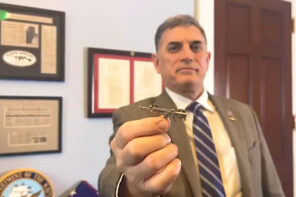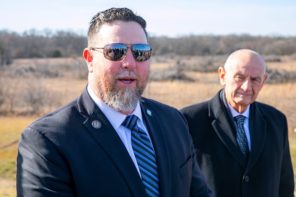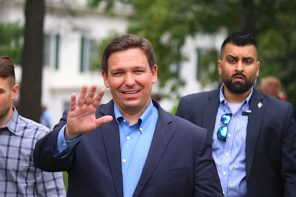It seems that President Obama’s appeal to the black caucus back in September to get out the vote fell short. Facing a Senate with no African-Americans, perhaps it is time to revive Eddie Glaude’s ‘black church is dead’ argument and look at it in light of black voter turnout.
Exit polling indicates so far that 10% of African-Americans showed up at the polls across the country. Where was the black church in this election? Despite get out the vote efforts, the “machine” perhaps was unable to conquer potential voters’ disaffection over foreclosures and unemployment. The traditional effectiveness of the church for the Democratic Party in 2012 is going to be tested by the Tea Party’s mobilization, voter apathy, and a growing number of conservative African-American candidates.
A record number of black Republicans ran in this midterm election (some had already lost their primaries), and two are heading to Congress. Tim Scott will be the first African-American Republican to represent South Carolina in Congress since Reconstruction. (He beat out Strom Thurmond’s son in the primaries.) Iraq war veteran Allen West will be headed to Congress from Florida, despite having been fined for improperly firing his weapon to force information from a detainee while serving in Iraq, and for his connections to a criminal motorcycle club. West’s acceptance speech was peppered with Scripture, telling the crowd “You are the salt of the earth, you are the light of the world.” These candidates, part of a conservative wave of minority candidates this election cycle, can be seen as part of the push, as Sarah Posner has discussed, to gain traction among African-Americans with by focusing on abortion as “black genocide,” and gay marriage.
If the 2010 election is a preliminary tea-leaf-reading to 2012, then President Obama has a lot to think about in terms of re-mobilizing the strong African- American voter base that he enjoyed in 2008. Part of that base — the old guard “black church” coalition — is not as strong as it could be. Republicans have learned to mobilize their “affinity groups” but black churches do not have the same strong community and “affinity” links that existed in the past. President Obama’s impassioned “preacher voice” was not enough to draw black voters out in record numbers as they did in 2008, even though a poll in the New York Times showed his favorables to be extremely high in the African-American community, while he is losing traction with other groups who voted for him in 2008.
Issues in the community surrounding foreclosures and unemployment are likely to continue. If the black church writ large is to have any stake in the 2012 election, it needs to be organized around issues that matter to it. Coalitions are more than just preachers and powerbrokers in individual communities.
The Republican House promises spurious investigations, partisan witch hunts, and gridlock. For black churches, more than prayer will be needed to counter what’s coming down the pike.




